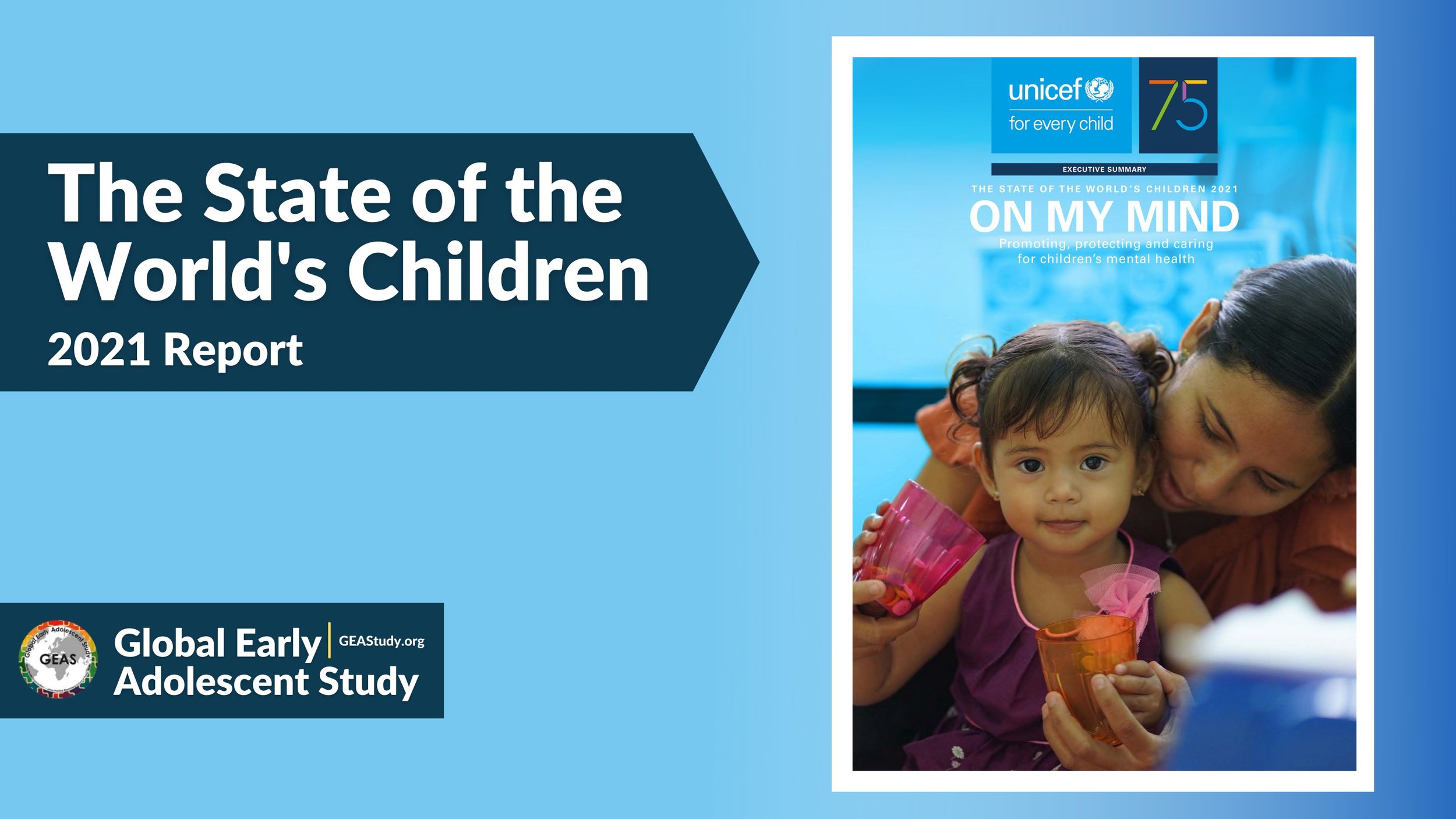UNICEF releases 2021 State of the World’s Children Report
On October 5th, UNICEF released the 2021 State of the World’s Children Report that focuses on child and adolescent mental health. Throughout the report there are the voices of young people that are based on focus groups held with young people around the world. To hear what young people say they turned to the Global Early Adolescent Study team to help facilitate focus groups. Altogether, 89 focus groups were held in 13 countries (Belgium, Chile, China, the Democratic Republic of Congo, Egypt, Indonesia, Jamaica, Jordan, Kenya, Malawi, Sweden, Switzerland, and the United States).
While some findings were not surprising (such as school being stressful and the isolation from COVID-19 restrictions being depressing) others were both surprising and deeply disturbing. We heard, for example, that the restrictions placed on girls in some places lead to a sense of hopelessness.
As one girl in Egypt said:
“I am suffering from psychological problems because of the traditions and values of my community. I mean when it comes to work, [I am told that I] should not work so that no one gossips about me and [I am told] don't go anywhere or go out.”
The prevalence of sexual violence was also not surprising but the extent that girls talked about it around the world was both shocking and sad:
[Girls worry about] coming home alive or even safe or even making it home...most times I don't even leave my road because you have some perverts in my community and sometimes I feel very uncomfortable, you know? And even if you tell somebody or say it to somebody like an adult, they will not believe you. (Jamaica)
The teachers harass girls even in primary or preparatory school, he touches her in ways and she is unable to talk, because if she does, he will fail her and if she tells her people, they will say you are wrong, no teacher would do that. (Egypt)
So you are a girl and you're staying with your dad, only the two of you. When he is drunk, he stops seeing you as a baby and his mind makes him see you as his wife. You can end up being raped by your father. (Kenya)
We heard painful stories of how girls are devalued as is reflected, for example, in the following quote from a young girl in Jordan:
“There are many parents who do not care for their daughters. They tell her, “You came by mistake, we do not want you, and you are not our daughter.” The girl [comes to] hate herself and regrets that she came into this world and regrets her behavior and [wonders] why her family hates her.”
We heard stunning stories of sexual violence and harassment including from one girl who told how her father solicited sex from her in exchange for school fees. Others told how teachers solicit sex in exchange for good grades; and the pervasiveness of sexual harassment was told in high, middle and low income countries alike.
We heard repeated stories of self-harm (cutting). We heard it from both boys and girls in Chile, Indonesia, Jordan, China, Jamaica, and Malawi. And we heard stories of how the social media can encourage young people to hurt themselves as in the story, “one like, one cut”, told by a focus group in China where a young person was sharing their depression on the internet:
WeChat Moments at the midnight. Change the avatar and background, the bright avatar was replaced by a dark avatar, accompanied by a NetEase CloudMusic text, and posted in the WeChat Moments. Then two hours later, one like one cut. Just pick [post] a thumbs up and he will cut himself. It means they need others' encouragement [to self-harm]. If we pick "Like", we are the accomplice.
What emerges from the voices of young people is a portrait of distress that often goes unacknowledged and where the problems that young people have are seen as the angst of adolescence rather than for what they are—significant emotional challenges. The full State of the World’s Children Report is available as of October 5th here on our website and on the UNICEF website.

